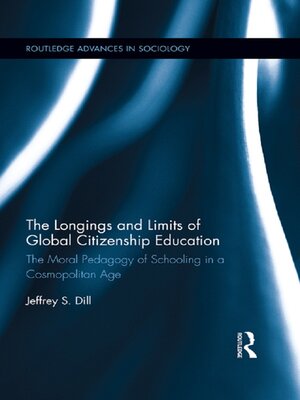The Longings and Limits of Global Citizenship Education
ebook ∣ The Moral Pedagogy of Schooling in a Cosmopolitan Age · Routledge Advances in Sociology
By Jeffrey S. Dill

Sign up to save your library
With an OverDrive account, you can save your favorite libraries for at-a-glance information about availability. Find out more about OverDrive accounts.
Find this title in Libby, the library reading app by OverDrive.



Search for a digital library with this title
Title found at these libraries:
| Library Name | Distance |
|---|---|
| Loading... |
As the world seemingly gets smaller and smaller, schools around the globe are focusing their attention on expanding the consciousness and competencies of their students to prepare them for the conditions of globalization. Global citizenship education is rapidly growing in popularity because it captures the longings of so many—to help make a world of prosperity, universal benevolence, and human rights in the midst of globalization's varied processes of change.
This book offers an empirical account from the perspective of teachers and classrooms, based on a qualitative study of ten secondary schools in the United States and Asia that explicitly focus on making global citizens. Global citizenship in these schools has two main elements, both global competencies (economic skills) and global consciousness (ethical orientations) that proponents hope will bring global prosperity and peace. However, many of the moral assumptions of global citizenship education are more complex and contradict these goals, and are just as likely to have the unintended consequence of reinforcing a more particular Western individualism. While not arguing against global citizenship education per se, the book argues that in its current forms it has significant limits that proponents have not yet acknowledged, which may very well undermine it in the long run.







